Khushi
Strengthening Integrated Child Development Services (ICDS) to improve the early childhood education, health, and wellbeing of young children
One of our flagship projects, KHUSHI works towards strengthening the functionality and quality of service delivery of government’s Integrated Child Development Services (ICDS) Program to improve the health and well-being of children below 6 years of age with a focus from marginalised communities in Chittorgarh district of Rajasthan. The project works with over 1000 Aaganwadi centres, covering 6 blocks of two districts (Chittorgarh-Gangrar, Chittorgarh Rural, and Bhadesar and Bhilwara-Shahpura, Hurda, Suwana). The project has focused approaches to enable existing government supported systems to provide quality supervision support to field level functionaries in delivering a quality preschool education, health and hygiene program activities.
This project seeks to address the issue of insufficient school preparedness in children by developing the existing preschool support mechanism to strengthen capacity building and resource support to Anganwadi workers. In line with the specific objectives of the project- strengthening pre-school education and health status of children in age group 0 to 6 years, it focuses on enhancing the capacity of supervisors, improvement in infrastructure and monitoring attendance, retention and development of children.
The project is currently addressing the issue of insufficient school preparedness in children by transforming existing preschool support mechanism through quality capacity building of Anganwadi workers, provision of learning resources, upgrading AWCs infrastructure, parenting education and community and AWCs linkages.
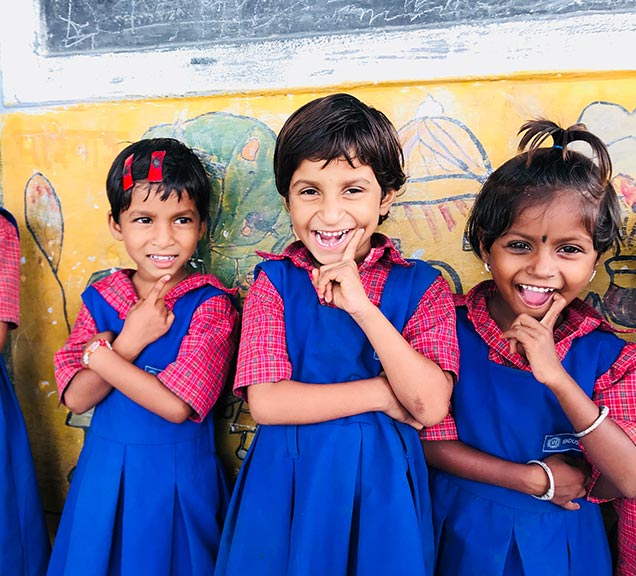
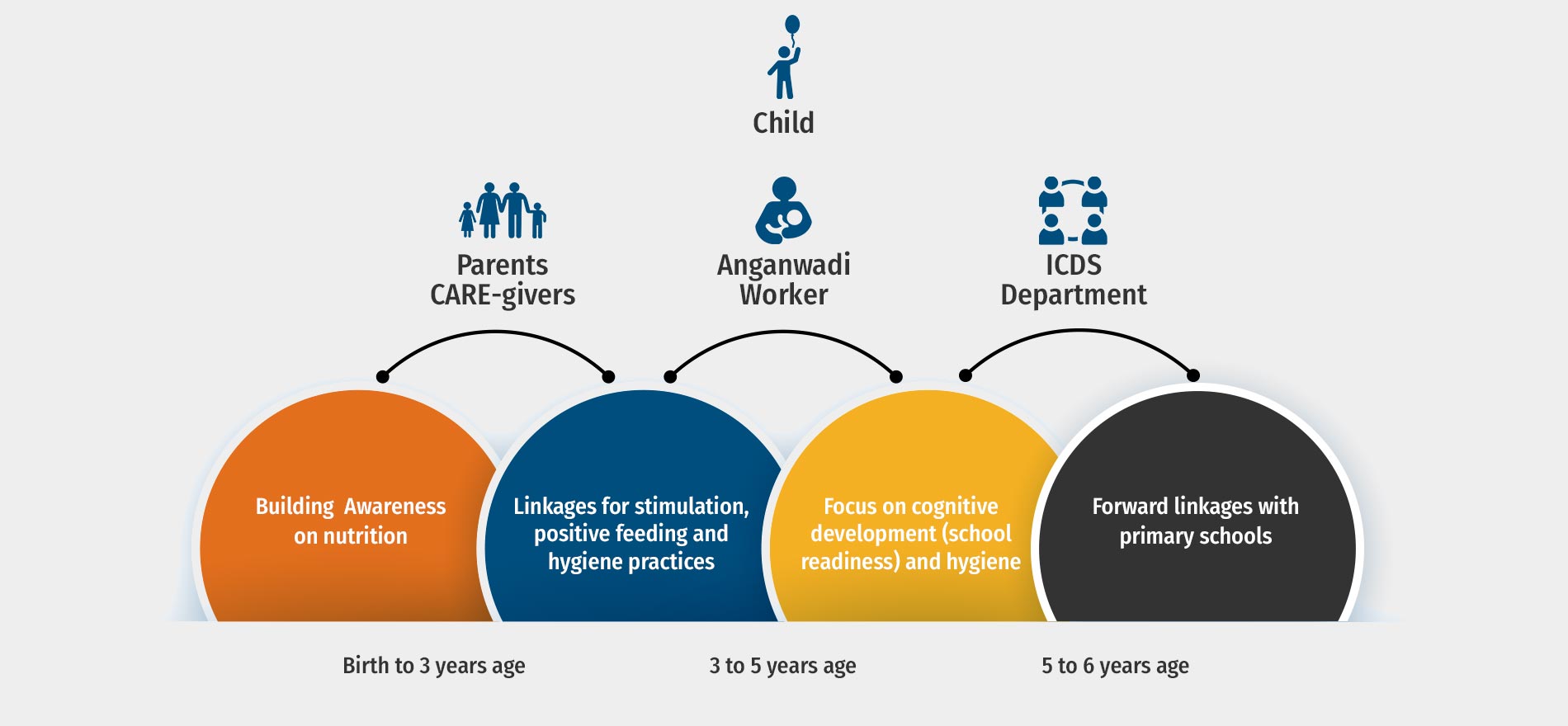

Child

Parents CARE-givers

Anganwadi Worker

ICDS Department
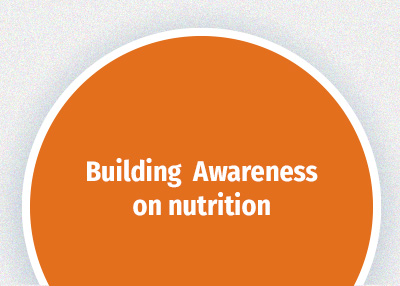
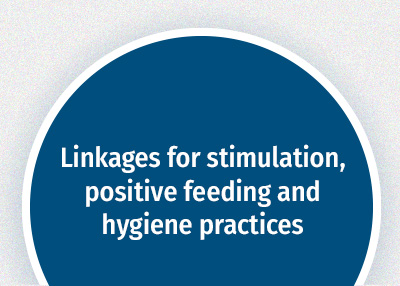
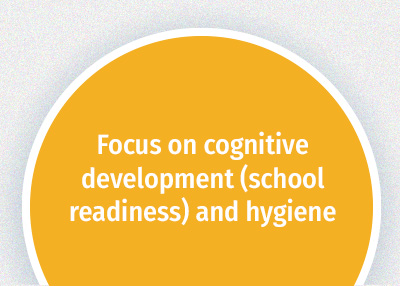

Birth to 3 years age
3 to 5 years age
5 to 6 years age
Our activities
- Building on local resources and community engagement, we have created stimulating learning environments within AWCS using floor painting, wall displays and learning corners
- We have established an environment of decentralized teachers’ professional development to guide perspective, planning and execution and a comprehensive and balanced literacy approach with formative assessment
- We work to create reading culture in the community by establishing community based mini-libraries and promoting story melas
- The project is in alignment with the vision of quality and universal pre-school/early childhood education as articulated under National Education Policy and recently launched NIPUN Bharat mission
- Community-based management of malnutrition technique is a strategy that reduces malnutrition among children aged 5 to 59 months. After identification of SAM (Severely Acute Malnutrition) children treatment camps are organised at selected places where ANMs conduct medical examinations and enroll children in corrective treatment(s)
- Regular recipe contests are conducted among the parents of children enrolled at AWCs to promote the consumption of take home ration (THR), enhance knowledge of lactation and importance of nutrition of pregnant women. During such events, awareness building is done on making different types of recipes from THR, age appropriate feeding, hygiene, sanitation and other essential aspects.
Impact
- The project applied a holistic literacy acquisition approach that involved working with multiple stakeholders who play a critical role in ensuring all children in early grades read with comprehension.
- These mediums facilitate engagement with an environment where AWWC and children engage in various language and numeracy development activities such as identifying colors and; shapes, learning the alphabet and numbers through patterns painted on the floor.
- The Read in Time project was successful in directly improving reading ability of over 150,000 children enrolled in 1108 intervention schools in two states.
- Through community-based management of malnutrition, 82% children in Bhilwara and 62% children in Chittorgarh moved out of SAM.
- Upto 23% mothers of children aged 6-23 months practiced exclusive breastfeeding within first six months of enrolling.
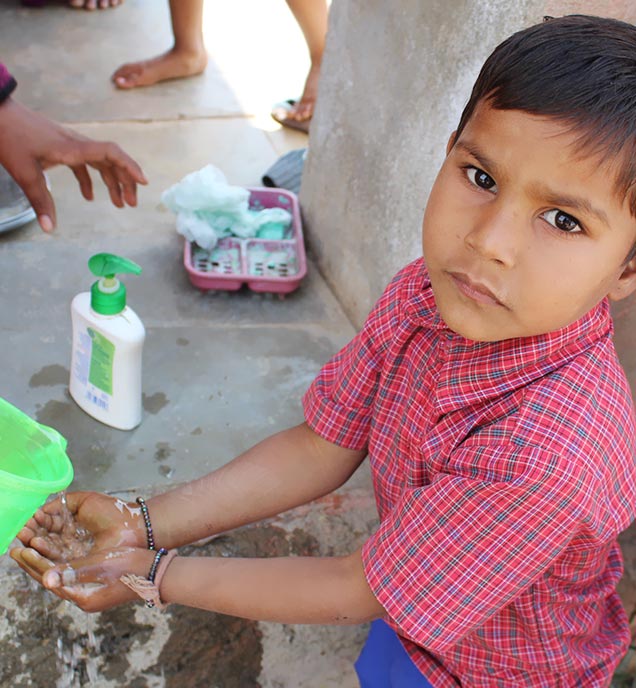
Connect with Us
Corporate and Registered Office
Module No. 411, 4th Floor, NSIC-MDBP BuildingOkhla Industrial Estate, New Delhi – 110020 (INDIA)




